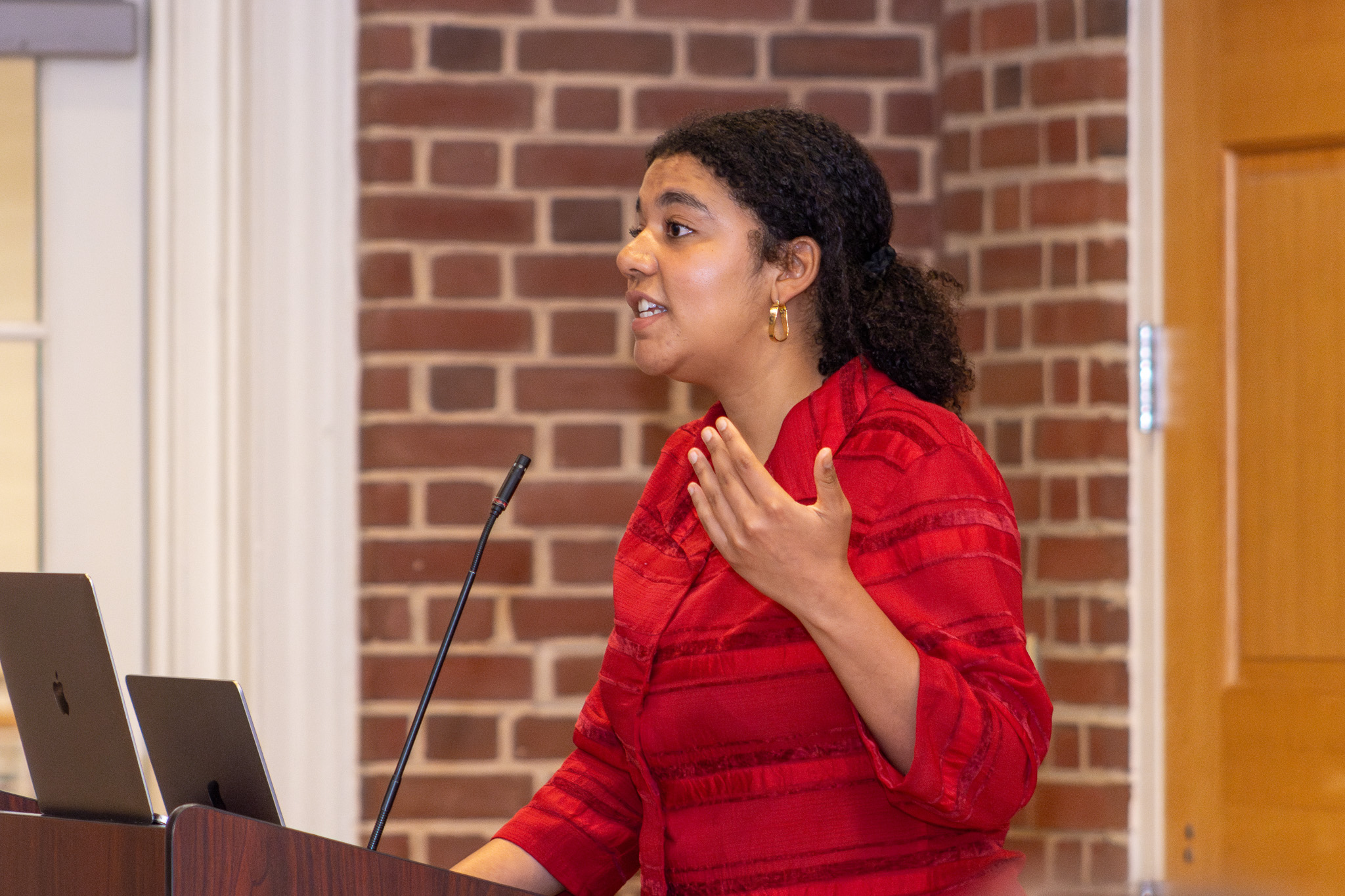By Nicole Pilsbury
For The Diamondback
Environmental experts and activists discussed Indigenous approaches to climate justice Thursday during a symposium at the University of Maryland.
The Environmental Science and Policy Program’s fifth annual symposium, held in Stamp Student Union, featured three guest speakers who discussed the importance of Indigenous knowledge systems, which climate scientists and experts have recognized as valuable in the fight against climate change.
Miranda Mlilo, who graduated from this university in 2019 with an environmental science and policy degree, discussed colonization’s impact on Indigenous people and the horrors they experienced on land that is now designated as national parks in the United States.
“Indigenous people and other local communities are systematically being evicted from their ancestral lands, and are being beaten and tortured and killed, and also abused by armed guards,” Mlilo said. “Indigenous people are not just part of the solution. Indigenous people are the solution.”
[Farming expert highlights importance of ethnic crops at UMD lecture]
She discussed solutions driven by Indigenous knowledge, such as protecting threatened species and ecosystems and addressing biodiversity loss.
Evidence has shown that Indigenous people understand and manage their land better than others, Mlilo said in her presentation.
Peruvian attorney Gisela B. Hurtado Barboza, another speaker, emphasized that talking with young people about the Indigenous fight against climate change is important.
“Students are very early in their careers and their studies, they also need to be involved and aware of what has happened in the climate movement,” Hurtado Barboza told The Diamondback.
At the symposium, Hurtado Barboza shared the work she does at Amazon Watch, a nonprofit organization that protects the climate and Indigenous people in South America.
The organization amplifies Indigenous voices by advocating in the United Nations and centers voices of Indigenous leaders as they pursue their goals, she said.
Senior environmental science and policy major Victoria Westerman attended the event after taking an environmental justice class this semester.
“A lot of Indigenous rights get overlooked or pushed aside. They’re not put at the forefront, so I think having an event where a lot of students from these classes, as well as the program, were able to attend really brought the issue to the forefront,” Westerman said.
[Harvard professor discusses history of life on earth in UMD lecture]
Students also learned about Indigenous resistance movements from Sebastian Medina-Tayac, a member of the Piscataway Indian Nation who founded Red Cedar Farms, which grows cannabis and natural leaf tobacco. Medina-Tayac shared stories about the American Indian Movement and the movement at Standing Rock, two efforts that developed out of a need to protect Indigenous people’s rights and land.
Caroline Boules, a senior lecturer in the environmental science and policy program who helped organize the symposium, said highlighting these intersections between environmentalism and human rights is crucial as experts mitigate climate change.
“I think it’s really, really important if we are going to be talking about environmentalism, protecting the environment, to be talking about the human rights issues that go along with it, or that environmentalism has sometimes made worse,” Boules said.



